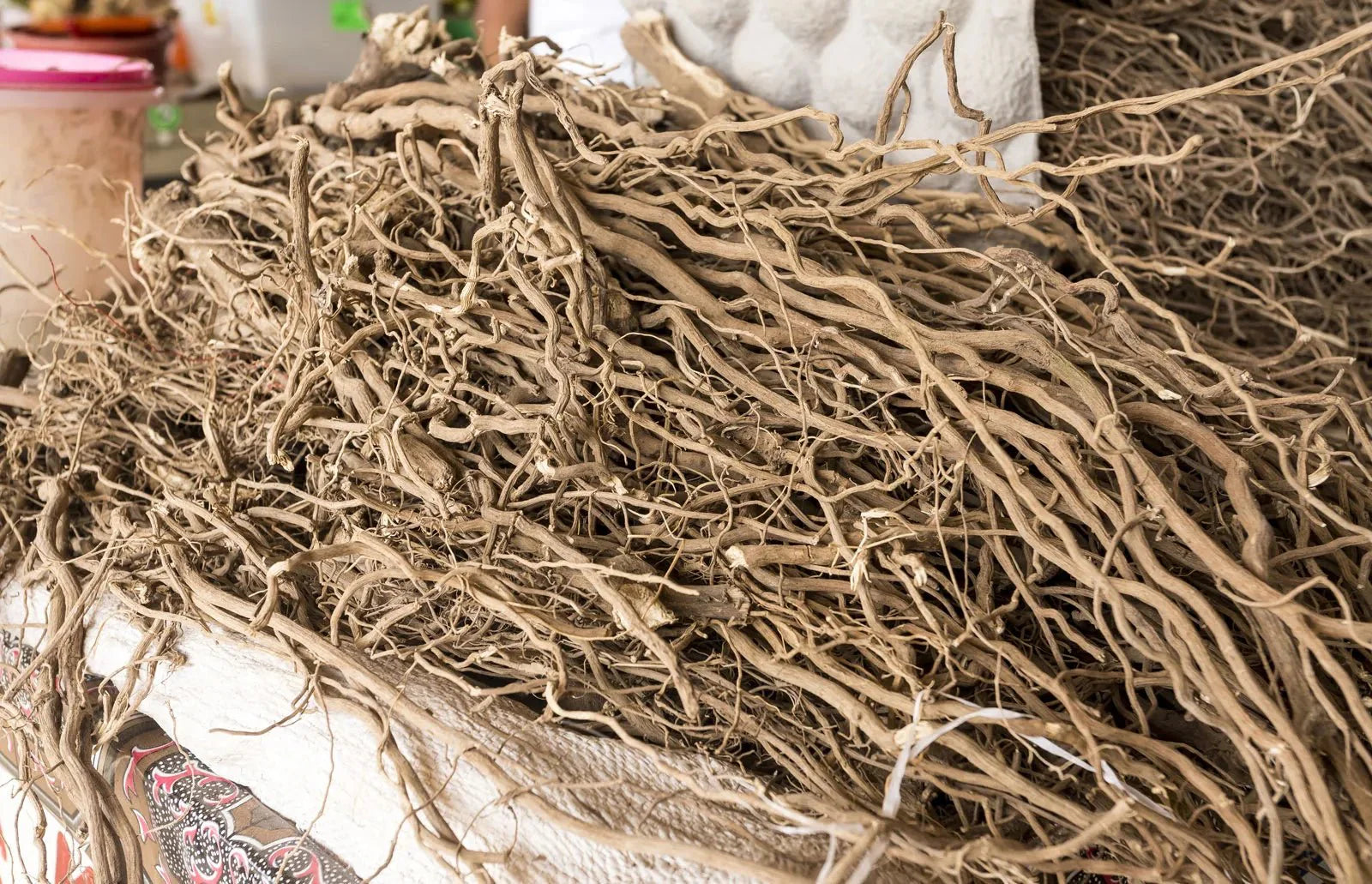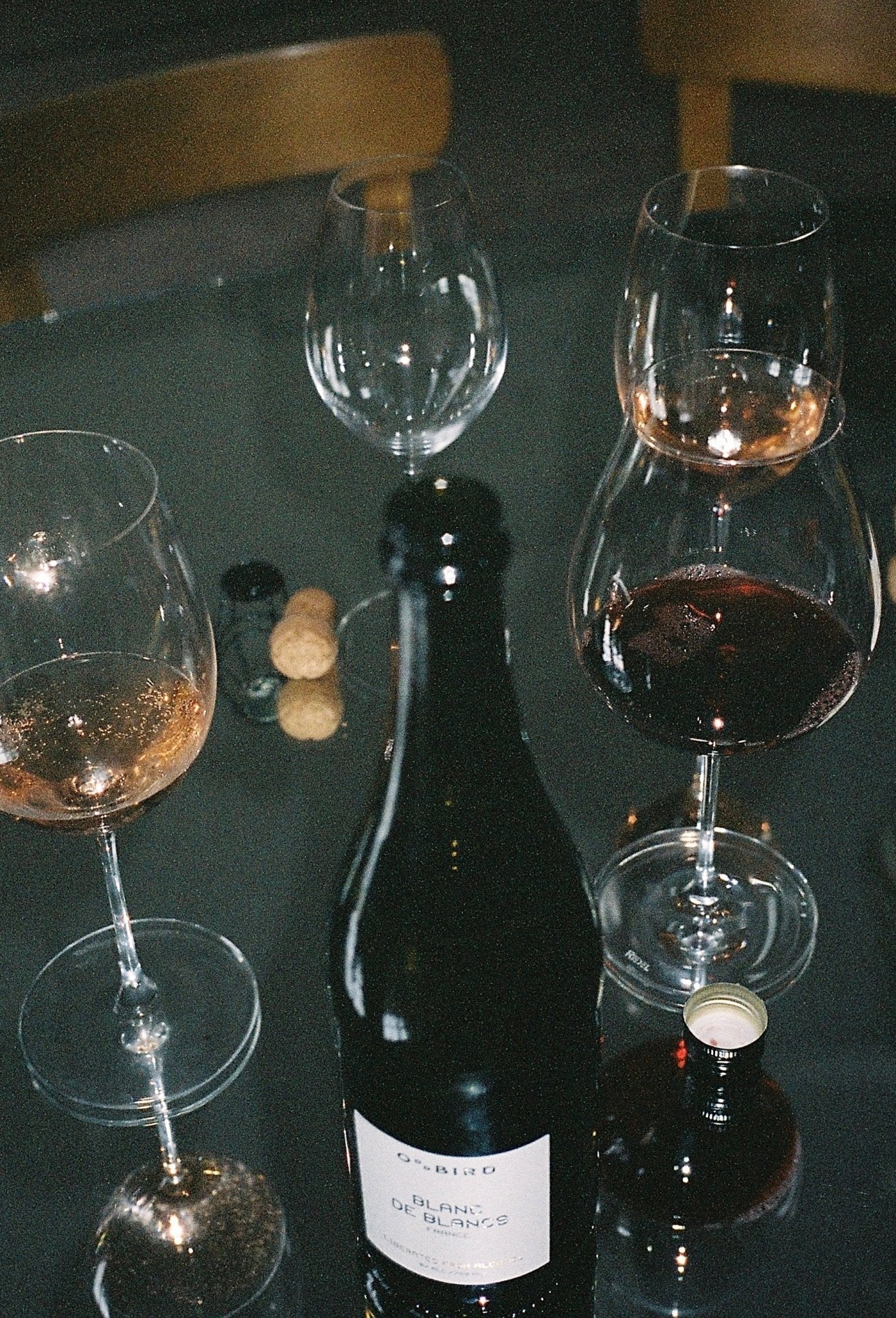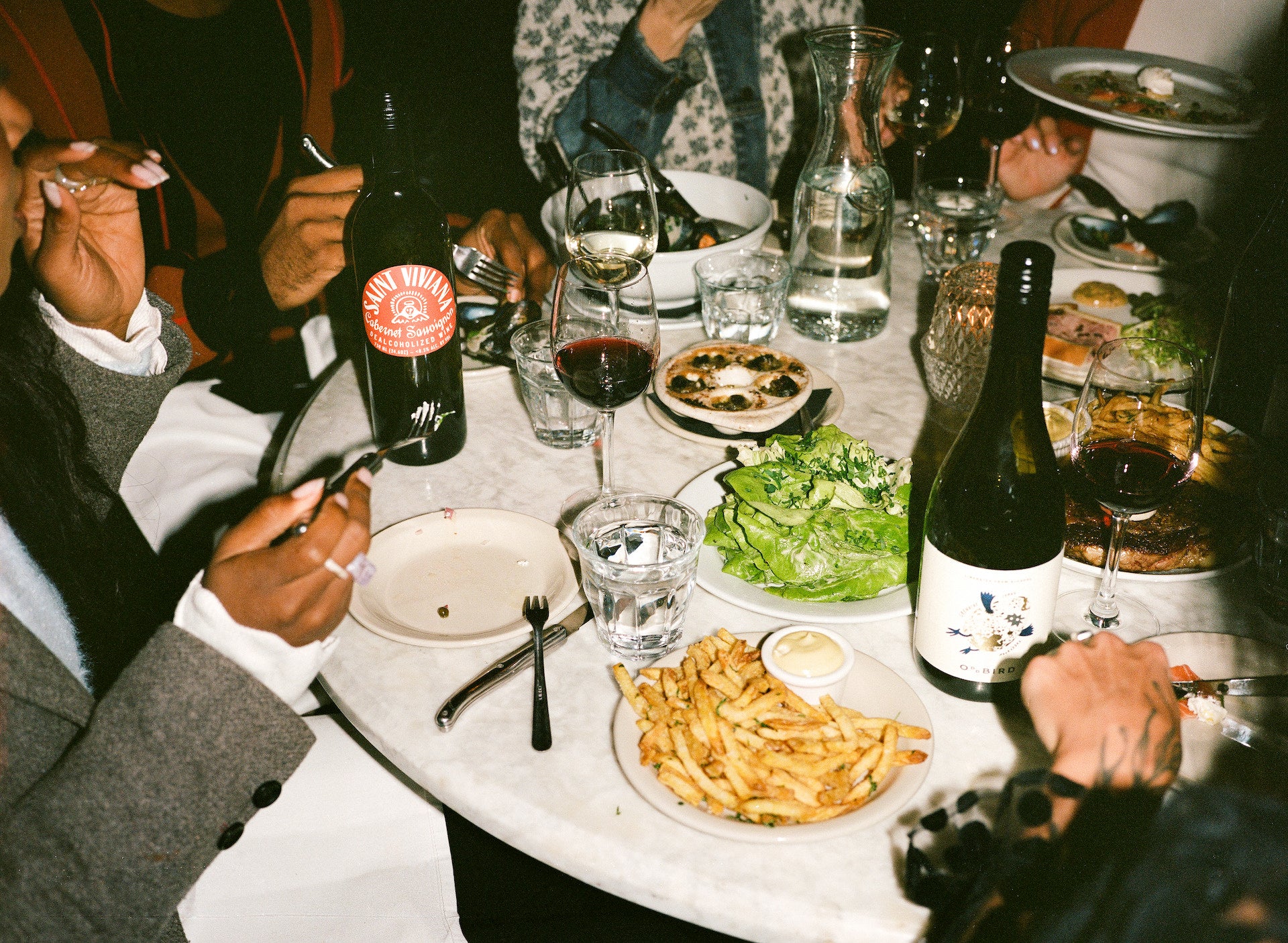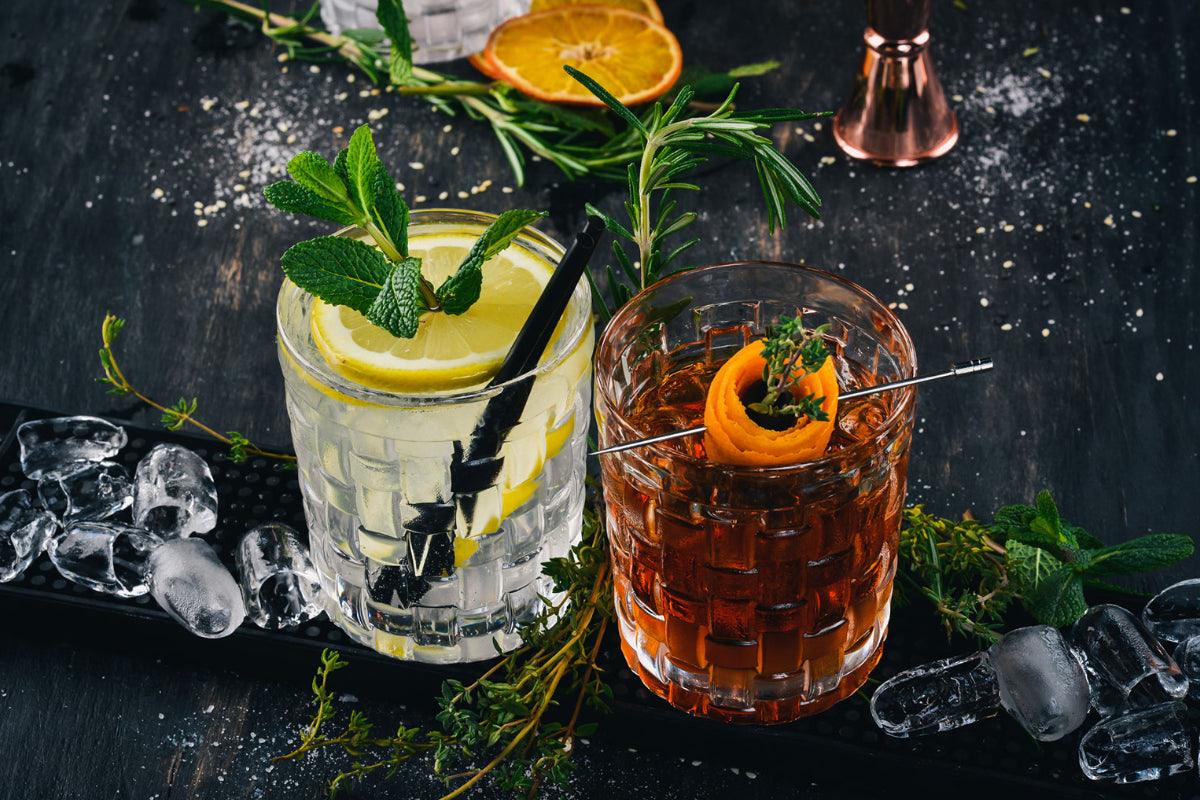Here are some non-alcoholic amaros we love in 2026


Among the myriad of spirits embraced by the booze-free community, amaro stands out. Tickling the palette in all its bitter, citrusy, herbaceous glory, this storied liqueuer's bold botanicals create a deeply sophisticated flavor profile that invites drinkers to slow down and enjoy themselves.
It's no wonder that many of the most innovative zero-proof spirit makers in the world have crafted complex amaro bitters using everything from classic botanical combinations to obscure, esoteric plants and herbs that elevate the zero-proof experience. We share a few of our favorite, non-alcoholic amaros in this article...
But first, read on for a look back at amaro's rich, mysterious past, and its certain future, as a spirit celebrated among zero-proof connoisseurs all over the world.
Amaro's Ancient Origins
The history of all amari begins in Italy, where the catch-all term has come to describe a myriad of digestive drinks. The Romans (and Greeks) were the first civilization to learn that distilling aromatic herbs in liquid greatly aided digestion. Apicius, an ancient Roman cookbook compiled in the 1st Century AD, references how adding clove, honey and other spices to spirits created a spiced wine called vino hippocraticum that was commonly enjoyed after orgies.
During medieval times, a widespread cultural fascination with alchemy led many monasteries to produce medicinal elixirs by growing herbs and infusing them to create new digestive tonics (many with secret recipes that are guarded to this day). Near Florence, for example, the Servite Fathers monastery on Monte Senario still produces their world-renowned Amaro d'Abate out of pine tree sap extracted from its surrounding forests.
In centuries that followed, the tradition of crafting amari as familial home brew continued. The recipe for cento erbe amaro, thought to derive from the Roman ex centum erbis concoction praised by Roman naturalist and author Pliny the Elder, has also been passed down among generations. The relatively simple infusion includes three leaves each of rosemary, laurel, basil and sage in addition to juniper berries, chamomile flowers, lemon, cinnamon and clove.
Because such recipes often required herbs sourced from local plants and trees, each region of Italy developed its own distinct variant of amaro. Meanwhile, many families also developed their own, regional recipes - including names you may recognize like Averna, Montenegro, Lucano, Ramazzotti and Fernet-Branca - scaling their production to start businesses that eventually grew into large, international brands.
Whether you prefer the traditional amari flavors - be it the bittersweet, citrusy notes found in brands like Averna and Ramazzotti, the more full-throttle bitterness of Fernet, or the more adventurous variants that hit on sweeter and smokier notes - there truly is an amaro out there for every palette.
The Zero Proof Amaro Renaissance
Amari have become increasingly popular within the booze-free community, providing the elevated flavors expected from any sophisticated, adult cocktail without the alcohol. Fernet-type spirits are a common variant, as are spirits more closely resembling the citrusy, spicy digestive Campari.
The root of the alpine gentian plant, a bittering agent commonly used in popular amari like Campari and Aperol, has also given many non-alc amari their trademark bitterness. The inclusion of gentian root, along other natural botanicals, also infuses amari with added health benefits that promote the wellness inherent in any booze-free lifestyle.
Lapo's Non-Alcoholic Amaro
First on our list is Lapo's Amaro, a northern italian inspired amaro featuring balanced notes of mint, juniper, eucapytous and an integrated sweetness. This is both a barteneders best friend as well as the perfect post-dinner digestif. Honestly, we haven't found another alcohol free amaro that meets this quality.
Ghia Amaro and Aperitif Insipired Lineup
Lately, we also keep pouring ourselves another glass of Ghia, a zero-proof amaro closer in flavor to boozy brands like Aperol or Campari.
Ghia founder Melanie Masanin created the spirit to "take back the word drinking from alcohol" inspired by memories of watching her mother and grandmother make giant jugs of limoncello during her childhood summers spent in the Mediterranean.
The "potent plants, natural nervines, heady herbals, and blithe botanicals" at the heart of Ghia's refreshing flavor include riesling white grape, Japanese yuzu, lemon, elderflower, fig, rosemary and ginger. Each ingredient was chosen for its distinctive ability to naturally soothe and stimulate, producing a spirit "meant to bring out the best version of you without numbing the night (or the next morning)."
Gnista
We've been selling Gnista since 2022 and has always had a special place in our heart. We've profiled female founder Erika, from Sweeden, who has been making these amaro inspired creations in batches using premium ingredients. This is easily one of the most unique non-alcoholic spirits on the market, and acclaimed for being one of the few you can enjoy neat or on the rocks. The most amaro inspired product is their floral wormwood which you can find here.
Pathfinder
Launched in 2024, this US based brand is catching fire with bartenders and retailers for it's punchy brand and infusion of hemp in it's amaro-inspired spirit. We love the taste and think it makes great alcohol free cocktails, and are appreciative of the functional ingredients, although some might be put off by the inclusion of "hemp" because of it's association with its more potent ingredients. Grab a bottle here.
Bitter Note Alcohol Free Amaro
Another of our favorite purveyors of zero-proof amari is Bitter Note, an Italian spirit that lives up to the musical pun embedded in its name by creating "a surprising harmony of flavors... seven small marks on the staff for an infinite variety of compositions and melodies." It topped the carts in our 2019 best non-alcoholic drink write ups, but isn't available in the US as of this article.
Composed using over 40 botanicals, the spirit's seven aromatic notes illustrate an uncompromising artisanal craftsmanship that focuses on complexity - bitter, sweet, spicy, herbaceous, citrusy, fresh and balsamic. As anyone who has tasted it will vouch, this amaro truly takes the drinker (and their taste buds) on a rapturous, musical odyssey.
Hella Bitters and Soda
While not technically an "amaro" Hella Bitters & Soda is doing a great job incorporating bitter flavors (through their proprietary Hella Bitters mix) into canned, sparkling drinks. The company makes canned, sparkling bitter drinks that are great to drink on their own, or mixed in cocktails.So if you're looking for a refreshing, bitter drink on the go, Hella is a great option. In particular, we like the Hella Bitters & Soda Spritz Aromatic.
And it uses gentian root (a traditional amaro ingredient) from the South of France to add the bitter flavor.
Other notable non-alcoholic amaro mentions
Fighting out of the Canadian corner, we have Sexy AF Amar-oh, although it doesn't appear that they are in business anymore.
Last but not least, there's the upcoming Felix Spirituals Alta Botanica pending launch.
The alcohol free amaro is inspired by "Italian Holidays and Alpine Breezes," and the complex recipe includes many ingredients you'd find in a traditional, Italian amaro - sweet wormwood, rhubarb, bitter orange, cinnamon, green cardamom and gentian root, to name a few.
The flavor is a wonderful balance of bitter and sweet with a smooth finish (the slight sweetness comes from a wild harvested, African smoked honey). Alta Botanica draws inspiration from Alpine amaros, so you can expect pine forest flavors and an exhilarating, wintry blast from mint and eucalyptus.
Like any good spirit, non-alcoholic amaros are on a journey best taken slow, sipped and savored at a pace befitting not just the quality of the spirit, but the spirit of conversation, too.
We do reviews here at The Zero Proof. Here are some for non-alcoholic whiskeys and gins.





















